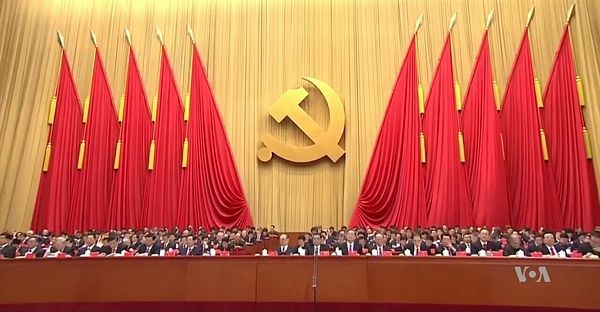China Seeks to Gain Strategic Influence in Horn of Africa
Chinese Foreign Minister Wang Yi recently completed his three-country tour of Africa where he visited Eritrea, Kenya and Comoros. Keeping with the tradition of sending its foreign minister to visit Africa as his first trip of each new year. China is now trying to gain strategic influence in the Horn of Africa. Located on the main shipping route for the transport of oil from the Persian Gulf to Europe and the United States, the Horn of Africa is considered one of the most strategically important regions in the world.
The foreign minister first visited Eritrea, a country which has joined the Belt and Road Initiative (BRI) in November last year. During the visit. China and Eritrea exchanged views on the situation in Horn of Africa and both sides expressed opposition to non-regional forces’ destabilizing and creating conflicts in the region while undermining regional peace and stability. The Chinese spokesperson added that as African countries” sincere friend and reliable partner, China is ready to play a constructive part in regional countries” efforts to realize peace and security in the region, unleash development potential and improve governance.
China has a long history with Eritrea where the East Asian Power supported the Eritrean Liberation Movement in the 1970s and later sold large quantities of military equipment to Eritrea during the conflict with Ethiopia. Eritrean President, Isaias Afewerki, the veteran revolutionary who led the independence movement, had received military training in China. Recently, in October 2020, Eritrea was one of the 54 countries backing China’s Hong Kong policy at the United Nations General Assembly. In November 2019. the China Shanghai Corporation for Foreign Economic and Technological Cooperation, known as “China SFECO Group”, began building a 134-kilometer road in coordination with Eritrean officials marking a new level of cooperation between Eritrea and China. Being a recent recruit to BRI, China is also expected to roll out some big-ticket projects for the region.
The visit to Eritrea signaled China’s interest to take a more active role in the Horn of Africa’s security issues. Wang Yi, during his visit to Eritrea, spoke out against US sanctions as an intervention in the domestic affairs of the country. He also called on the countries in Horn of Africa to hold a peace conference to resolve the many conflicts in the region and pledged that China would provide the necessary support for such an event. Alongside, China also elevated its relationship with Eritrea to a strategic partnership. Later, during his visit to Kenya, Wang announced the creation of special envoy post for the region. While he did not mention any details about the appointment, the announcement was made as the US special envoy to the Horn, Jeffrey Feltman, was visiting Addis Ababa. China who otherwise espouses the policy of non-intervention in the domestic affairs of other countries seems to bend its policy especially in the case of East Africa. China had also previously mediated in the Sudan/South Sudan conflict.
The increasing involvement in security issues matches with the overall prominent presence of China in the region. Djibouti is the site of China’s first overseas military base and Ethiopia has been among the top five recipients of Chinese investment on the continent. During the tour.
Minister Wang also made a reference to China’s willingness to develop Eritrea’s coast. Though he did not point to any specific plans, the increasing security and economic engagements of China in the region reflects the wider strategy of cementing Beijing’s presence in the Indian Ocean region. Eritrea might be considered as one of the least developed countries, but has considerable reserves of unexploited natural reserves and two great natural harbors. Massawa and Assab. China has deployed soldiers throughout East Africa and has even sent peacekeepers to secure Chinese-staffed oil wells in South Sudan. It has been speculated that China has already deployed soldiers in Eritrea to protect its existing diaspora in the region.
The projects on the Eritrean coast would also further consolidate China’s dominance on the shipping routes and shows China’s willingness to present itself as an alternative to the US in the region. Eritrea might seem like a little-known, one-party state with an ailing economy, however, given the strategic geopolitical location of the country, the conflicts in Eritrea presents an excellent opportunity to Beijing to secure an ally on the Red Sea. Unlike Western powers who have ignored the rogue regime. China is willing to ignore the country’s dismal record of human rights and trying to reap the benefits of securing a strong partnership with the autocratic state.













